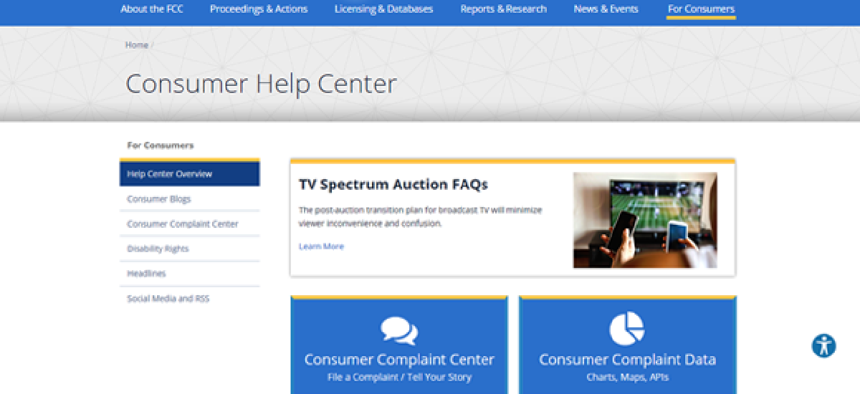How the FCC leverages the cloud for customer complaints


Connecting state and local government leaders
Modernization efforts are helping the Federal Communications Commission respond more efficiently, cut costs and increase transparency.
The Federal Communications Commission receives thousands of complaints every year on range of issues related to phone, internet, TV and radio services. But until 2015, the FCC didn’t have an efficient way to alert telecommunications providers of complaints and respond to consumers.
The agency purchased Zendesk’s Support product to analyze, track, prioritize and solve customer complaints for the Consumer Help Center as part of the agency’s efforts to move all of its legacy IT operations onto the cloud.
[Note: The Consumer Help Center is distinct from the FCC's Electronic Comment Filing System -- another cloud-based solution, which was temporarily knocked offline on May 7 and 8 by what FCC CIO David Bray said were "multiple distributed denial-of-service attacks."]
The software-as-a-service customer-complaint solution replaced 18 forms with a single ticketing system that provides support via email and a web form that handles up to 2,000 submissions a day. Approximately 98 percent of complaints are now filed online with the remaining 2 percent submitted on paper.
With the Zendesk platform, users can get immediate replies to their complaint filings and track them in real time. The process also reduced the FCC’s overall response time by 10 days on average.
While the FCC used to produce quarterly reports on the complaints data, the Zendesk system gives the agency a nuanced way to analyze it and find solutions to specific problems through a Socrata-powered open data application programming interface.
“The FCC’s Consumer Help Center leveraging Zendesk to replace our on-premise legacy systems represented the first external-facing SaaS product to go live at the FCC, but is one of many examples of how we’re using cloud-based technology to radically modernize the FCC IT enterprise,” Sarah Millican, FCC digital strategy advisor, told GCN.
Building an on-premise system would have cost the $3.2 million, while Zendesk’s platform -- running on Amazon Web Services infrastructure -- was deployed for $450,000. The service also reduces maintenance costs by $540,000 per year.
Dustin Laun, technology and innovation advisor at the FCC, originally suggested using a cloud-based system to cut down on costs and speed up the agency’s process for communicating complaints information.
Zendesk offered the FCC an alternative that allowed it to get the Consumer Help Center “up and running quickly, while also significantly reducing implementation costs and the time-to-launch timeline,” Laun said. The streamlined filing process took less than six months to deploy rather than the one-year timeline provided to the FCC.
The SaaS model also eliminates operations and maintenance costs -- requiring the FCC to only pay renewal fees rather than for each change, as the previous system required. “Cloud computing systems are generally less expensive to operate, more secure and more agile than much of the IT systems you see in today’s federal government IT landscape,” Laun said.
Additionally, as the FCC makes improvements on the Consumer Help Center, the number of licenses needed to support the enterprise system decreases and the renewal cost goes down as a result.
In 2016, the agency decided to open up some of the complaint data to the public using a Socrata-powered open data site and API. The information in the Consumer Complaint Data Center is used by companies for a variety of purposes including call-blocking technology and providing general information to customers about problems in specific geographic areas.
Now averaging 2.3 million API calls a month in 2017, FCC Consumer Data Advisor James Brown called the Socrata API “hugely successful” for the agency’s internal stakeholders.
“What used to take someone many hours or even days to piece together through an enterprise-level business intelligence tool can be accomplished [now] in a matter of minutes,” Brown said.
While the FCC and companies are able to leverage the open data to work for them, the Socrata service is not something that costs the agency more based on the volume of calls.
The Consumer Help Center was one of 30 finalists selected for the American Council for Technology and Industry Council (ACT-IAC) Igniting Innovation awards held on April 26.

NEXT STORY: Ports and Waterways Get Attention From Congressional Lawmakers




